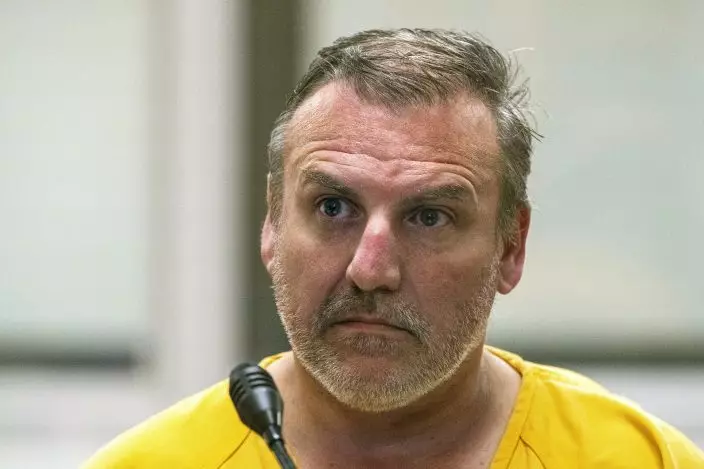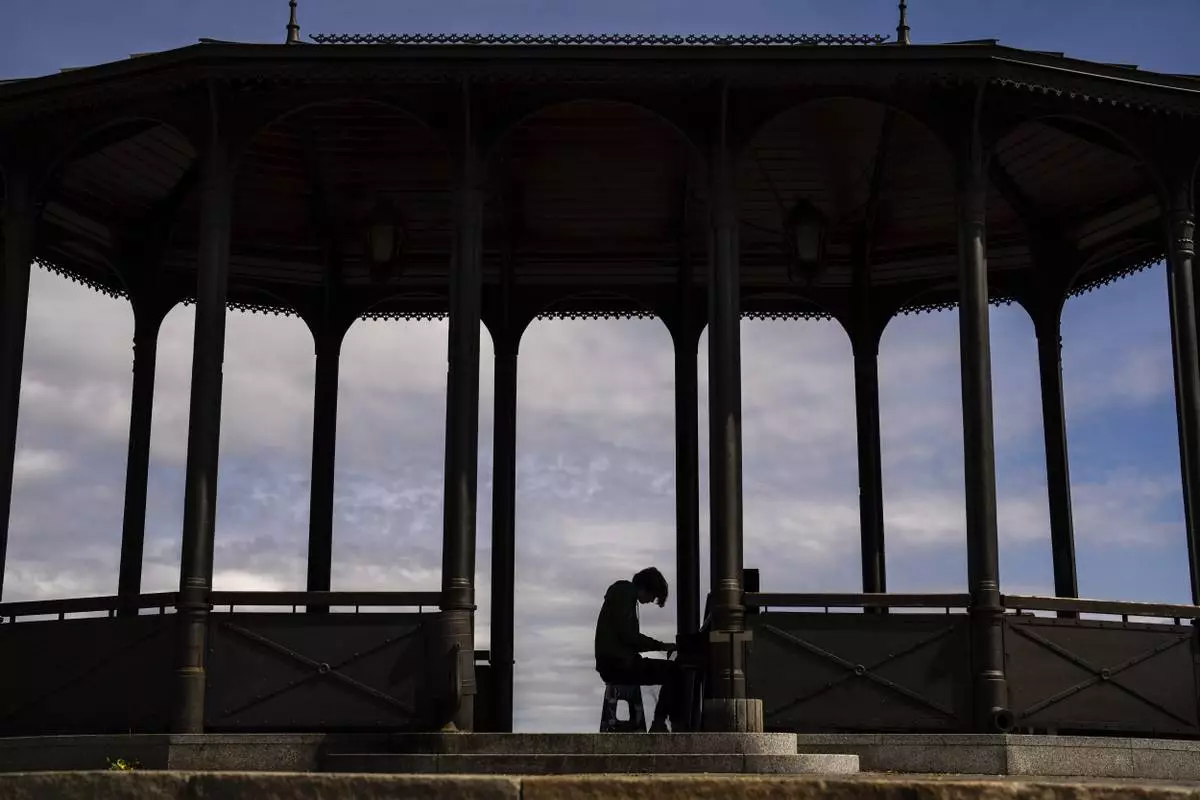The suspect in a torture killing in Alaska's biggest city ended up leading police right to him, first by losing a digital memory card labeled "Homicide at midtown Marriott" that contained video of the dying woman.
Then came an even more innocuous blunder: He spoke on the tape in his distinctive, very un-Alaska accent.
When a woman found the memory card on the street and turned it over to police, what detectives saw was horrific. At one point, the suspect complained to the victim, whose face was swollen and bloodied: "My hand's getting tired." He then stomped her throat with his right foot.

FILE - In this Oct. 9, 2019 file photo, Brian Steven Smith attends his arraignment on a charge of first-degree murder in Anchorage, Alaska. Losing a digital memory card that contained photos and videos of a horrendous killing may have been careless, but what led police to charge Smith was something he had no control over whatsoever: His South African accent. (Loren HolmesAnchorage Daily News via AP, File)
Amid the footage, a clue: The man spoke in an "English sounding accent," and detectives recalled Brian Steven Smith, a 48-year-old South African, from another investigation, the details of which they have not disclosed.
They arrested Smith, who has pleaded not guilty to the September killing of 30-year-old Kathleen Henry, an Alaska Native woman. During his interrogation, police say he confessed to shooting another Alaska Native woman. Police won't say if there may be other victims.
Anchorage has a diverse population — more than 200 languages are spoken in the school system — and it's not uncommon to hear Russian, Yupik or Hmong accents.
But South African accents aren't common, certainly not after the summer tourist season. Just a fraction of the city's foreign-born population comes from Africa, according to the U.S. Census Bureau.
Authorities identified the second victim as Veronica Abouchuk, who was 52 when her family reported her missing in February. The family last saw her in July 2018, police said.
Smith told police where he left Abouchuk's body. It was in an area near where State Troopers recovered a skull with a bullet wound earlier this year.
He pleaded not guilty to a second set of charges in court Monday, and bail was set at $2 million.
Several family members of the slain woman were sobbing and had to leave the courtroom when Smith was brought in.
After the hearing, Abouchuk's niece, Tatauq Ruma, said she has questions for Smith.
"Why did he do it?" she said.
Her "Auntie Veronica," a Yupik, grew up in the small community of Saint Michael, on the state's western Bering Sea coast. She eventually moved to Anchorage, where she taught her niece how to make breaded chicken by using crumbled up corn flakes.
Veronica Abouchuk had four children before she became homeless, a lifestyle she embraced.
The last time they spoke, Abouchuk told her niece she liked being homeless.
"She didn't say why. She was just happy that she was homeless and that she was OK with that," Ruma said.
She was full of life, Ruma said. "She's just a very sweet lady. She loved her kids. She loved everyone. I really miss her."
Other family members disputed that Abouchuk liked and embraced being homeless.
Those contentions "are all untrue," the victim's sister, Rena Sapp, said in a text message to The Associated Press Tuesday morning, saying she was speaking on behalf of the victim's sisters and children.
After the women were killed, their bodies were dumped along roads outside of Anchorage "like unwanted trash," the state says in a memorandum seeking $2 million bail on the more than a dozen counts he faces, including first-degree murder, second-degree murder and evidence tampering. If convicted and found to have committed substantial torture in the Henry case, he will be sentenced to a mandatory 99 years. Alaska doesn't have the death penalty.
"These were two Alaska Native women," Anchorage Deputy District Attorney Brittany Dunlop told a recent news conference. "And I know that hits home here in Alaska, and we're cognizant of that. We treat them with dignity and respect."
Joanne Sakar and Natasha Gamache had red hands painted across their faces as they held a silent protest to highlight what Gamache called Alaska's history of not properly investigating, prosecuting or sentencing perpetrators of crimes against Alaska Native woman.
The red hands painted on their faces represents the silencing of indigenous women.
"There's a movement called Missing and Murdered Indigenous Women that seeks to highlight the level of violence that's perpetrated against indigenous women and how nationally our criminal justice system isn't taking it seriously. So, I'm here today to showcase that," she said.
Police have released little information beyond what is in court documents. Anchorage Police Chief Justin Doll said there's no evidence of a public safety threat.
In seeking the high bail, prosecutors cited Smith's ties to South Africa.
"He poses a significant public safety risk, especially to the vulnerable, homeless women currently living on the streets of Anchorage," a bail memo said.
Authorities said Smith came to Alaska about five years ago and became a naturalized U.S. citizen in September.
Five years ago, he married Stephanie Bissland of Anchorage. She was visiting family members in Virginia when Anchorage detectives approached her and told her of her husband's arrest in the first homicide.
She told Anchorage television station KTUU that last month, Smith reported his vehicle had been vandalized and that his wallet, documents and a briefcase with phones and other electronics had been taken. She said it wasn't unusual for Smith to have memory cards lying around from cameras and other gear he would work on and sell but said she never saw any of them labeled.
She didn't return messages to The Associated Press seeking comment.
Smith's attorney, Dan Lowery, an assistant public defender, said he does not comment on pending cases.
Associated Press writer Becky Bohrer in Juneau, Alaska, and Associated Press researcher Jennifer Farrar in New York contributed to this report.










